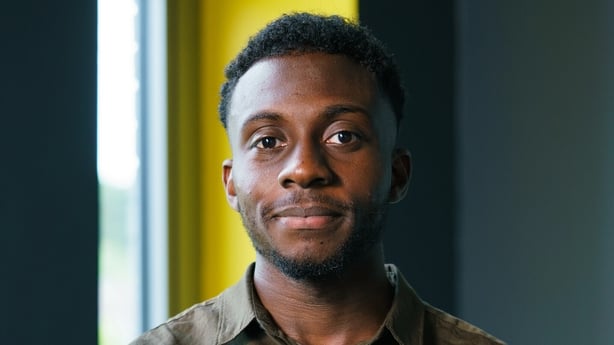Irish graduate Joel Olympio has won the National James Dyson Award with his invention 'Oasis', a wearable device that reduces visual distractions in open environments.
The invention resembles a pair of glasses and helps the wearer maintain a clear and focused main field of vision.
It is primarily aimed at people with ADHD (attention deficit hyperactivity disorder).
Mr Olympio is from Cork and is a product design graduate from the University of Limerick.
He was inspired to develop 'Oasis' by his own ADHD diagnosis.
"I learned about my ADHD when I was around 16 years old, which was relatively late," Mr Olympio said.
"Upon receiving my diagnosis, many of the challenges I had faced throughout my whole life, such as learning difficulties and being constantly distracted, suddenly started to make sense."
"Oasis is a narrative of how I developed a product to aid individuals in concentrating within bustling settings and how this journey led to a deeper understanding of myself," he said.
The project's name, Oasis, reflects its mission to provide a sanctuary of focus within distracting surroundings.
The device uses cutting-edge electrochromic film technology to dim the user's mid-to-far peripheral vision while maintaining a clear and focused main field of vision.

Barry Sheehan, Head of Design at TU Dublin School of Art and Design and long-time judge on the panel, said that Oasis has a deceptively simple design.
"At first glance it appears almost too simple," Mr Sheehan said.
"It is when you delve into what it does and why it does it, that you realise that it is solving a complex and little understood problem in a clever way," he added.
By winning the Irish leg of the James Dyson Award, Mr Olympio will receive €5,700 to develop his invention.
National winners proceed to the international shortlist where billionaire inventor James Dyson selects his global winners who each receive €34,000.
The annual award is an engineering competition for young inventors.
It is aimed at undergraduates and recent graduates and challenges them to tackle a global problem, from environmental issues to improving healthcare practices.







